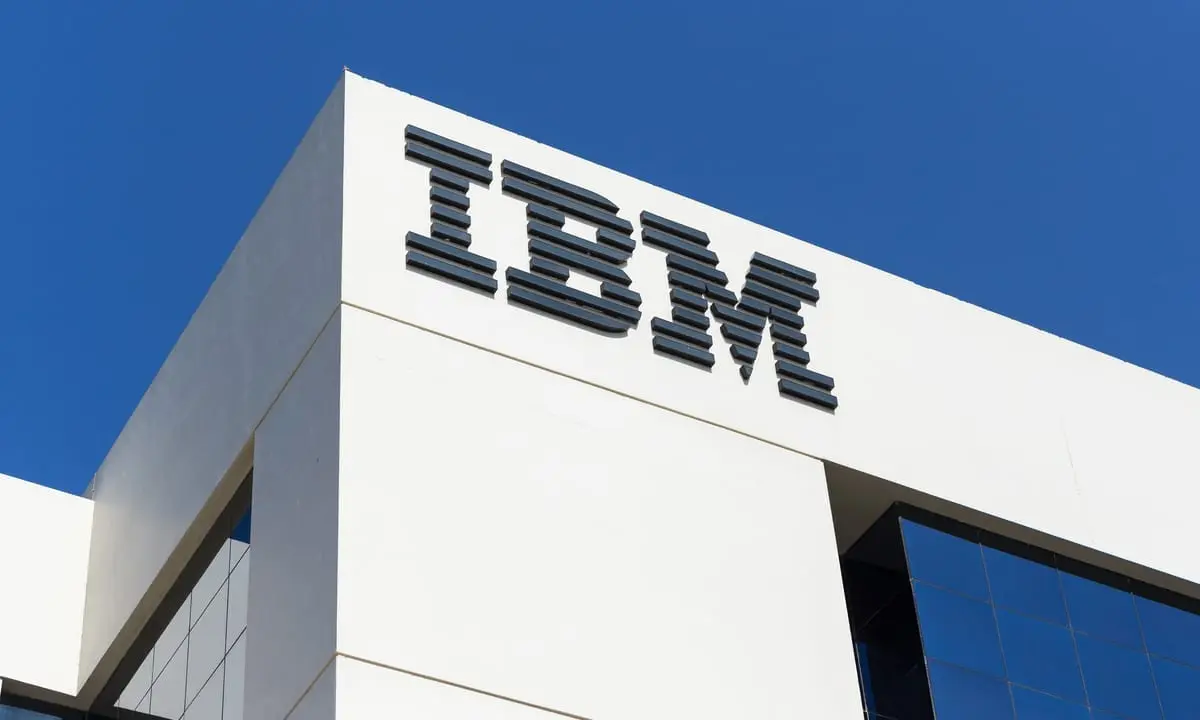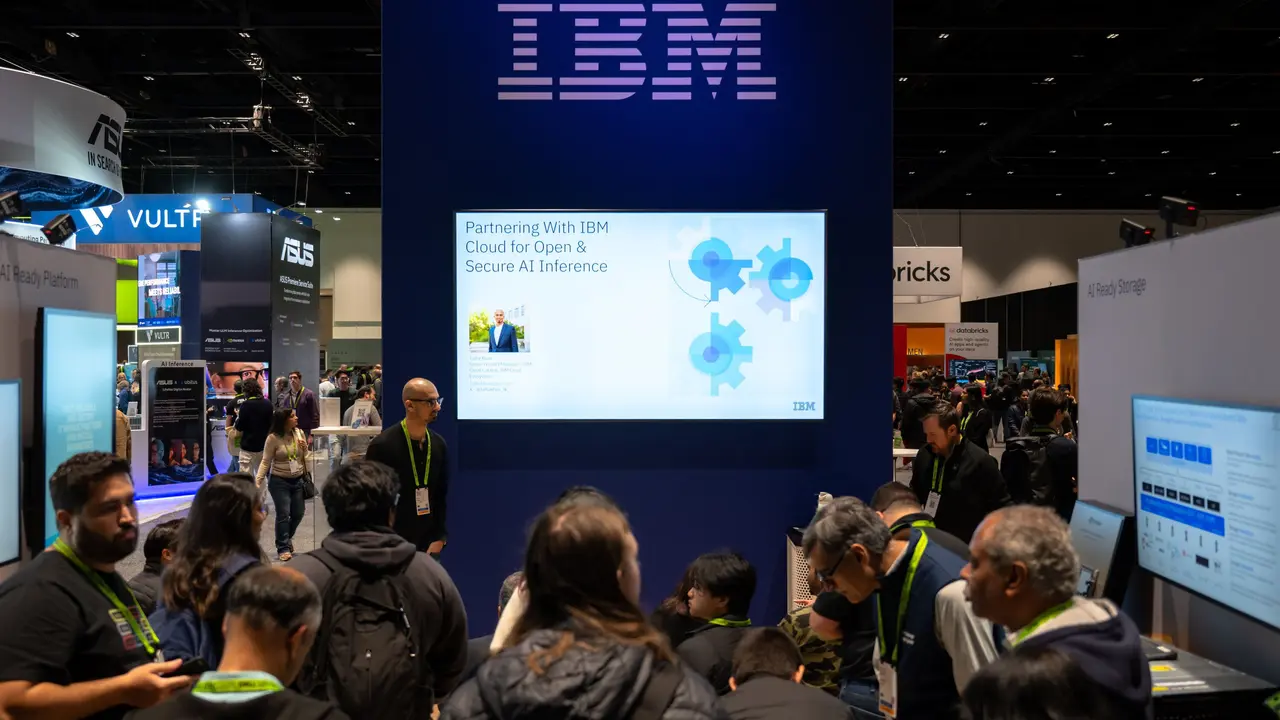IBM Cuts Thousands of Jobs While AI Business Surges to $9.5 Billion
6 Sources
6 Sources
[1]
IBM cuts thousands of jobs as it pushes deeper into AI and cloud computing
Serving tech enthusiasts for over 25 years. TechSpot means tech analysis and advice you can trust. The big picture: The layoff plan underscores how aggressively Big Blue is betting on automation, consulting, and quantum computing to define its next decade. It also marks the latest step in IBM's years-long effort to streamline legacy operations and refocus its workforce on the higher-margin segments driving future growth. IBM is planning another round of staff reductions as it deepens its shift toward artificial intelligence and high-margin software services. The company said the cuts will affect a low single-digit percentage of its global workforce, which totaled roughly 270,000 employees at the end of 2024. While precise numbers were not disclosed, IBM described the measures as part of an ongoing "rebalancing" aimed at aligning employee skills with growth areas such as AI consulting, cloud computing, and quantum research. A spokesperson said the overall number of US-based workers is expected to remain stable despite some job eliminations elsewhere. IBM did not specify the financial charge associated with severance payments. The announcement comes as major technology employers continue to trim corporate headcounts while investing heavily in AI infrastructure. Across the industry, companies including Amazon, Meta, and Google have also reduced staff this year amid a broad reshaping of the white-collar job market. At the same time, Big Tech firms are committing billions of dollars to expand data centers, GPU capacity, and software platforms supporting the next generation of machine learning models. IBM Chief Executive Arvind Krishna recently said the company has replaced work previously performed by several hundred human resources employees with AI "agents." The redeployment, he added, allowed IBM to shift hiring toward programmers, data scientists, and client-facing sales roles - underscoring the company's internal push to embed automation throughout its operations. The restructuring follows solid financial results. For the quarter ending in September, IBM reported revenue of $16.33 billion, a nine percent increase from a year earlier and above analysts' forecasts. Bookings for AI consulting and software rose to $9.5 billion, reflecting what investment bank Jefferies described as "strong momentum" in AI-driven enterprise demand. CFO Jim Kavanaugh told investors that roughly 80 percent of clients who purchased AI consulting or software in the past six months were new to IBM. He noted that mainstream corporations are now integrating machine learning and generative AI tools directly into production systems rather than experimental pilots. IBM has steadily narrowed its focus under Krishna, who took the helm in 2020. One of his first major moves came a year later with the spin-off of Kyndryl, the infrastructure and IT services unit that managed legacy computing systems. The separation allowed IBM to concentrate on scalable cloud platforms, AI consulting, and advanced computing initiatives. Among its most ambitious projects is the development of a commercially viable quantum computer capable of outperforming traditional hardware in processing power. IBM is competing with Google, Microsoft, and several startups to build larger clusters of quantum chips that can achieve reliable, fault-tolerant computation within the next five years. Success in that field could transform forecasting, logistics, and materials science - areas where conventional computing remains constrained. Despite optimism surrounding AI's growth potential, analysts caution that many companies have yet to generate consistent revenue from generative tools such as chatbots and code-assistance systems. For IBM, the longer-term challenge will be maintaining profitability while investing heavily in high-performance computing, data infrastructure, and AI-enabled software to serve an evolving client base.
[2]
IBM to Cut Thousands of Workers Amid A.I. Boom
The technology supplier said it was shifting its focus to higher-growth businesses, including A.I. consulting and software. IBM said on Tuesday that it planned to cut thousands of workers as it shifts its focus to higher-growth businesses in artificial intelligence consulting and software. The company did not specify how many workers would be affected, but said in a statement the layoffs would "impact a low single-digit percentage of our global work force." The company had 270,000 employees at the end of last year. The number of workers in the United States is expected to remain flat despite some cuts, a spokeswoman added in the statement. A massive supplier of technology to businesses, IBM joins other companies including Amazon, Meta and Google that have made recent staffing cuts as they race to invest more in the A.I. boom. Many executives have predicted more efficiency gains as the technology assists workers with coding and other tasks. Still, the payoff for companies banking on A.I. products like chatbots is unclear, and some analysts are warning of a potential bubble. Two weeks ago, IBM reported that its sales for June through September rose 9 percent to $16.33 billion. The results exceeded analysts' forecasts. In a conference call with analysts last month, Jim Kavanaugh, IBM's chief financial officer, said there was evidence that A.I. adoption in mainstream corporations was beginning to accelerate. Roughly 80 percent of IBM customers for A.I. consulting and software are new over the last six months, he added. IBM's bookings for A.I. consulting work and software rose sharply to $9.5 billion in the third quarter, "underscoring strong momentum in A.I.-driven demand," according to a research report from the investment bank Jefferies. The job cuts at IBM were first reported by Bloomberg. For years, IBM has engaged in what it has called "work force rebalancing," shedding some workers and adding others. The company did not disclose the charges for employee severance payments for the current round of layoffs. The company said it was reshuffling people and skills in step with shifts in demand. "We routinely review our work force through this lens and at times rebalance accordingly," according to the statement. Under Arvind Krishna, who became chief executive in 2020, IBM has aggressively pursued high-growth markets in cloud computing for business and artificial intelligence. The company's biggest move to narrow its focus on A.I. and cloud computing came the following year, when IBM spun off its technology services business, which maintains and modernizes traditional software and hardware for corporate customers. That business is now a separate company, called Kyndryl.
[3]
IBM Is Laying Off Thousands of Employees as Its AI Business Surges
IBM is making cuts as it focuses on high-growth areas such as AI consulting and software. IBM disclosed on Tuesday that it will eliminate a small percentage of its workforce in the current fourth quarter. The action will affect "a low single-digit percentage" of IBM's global workforce, the company told Bloomberg. According to The Register, IBM began notifying several thousand global employees this week about layoffs, issuing notifications that give staff 30 days to secure another position within the company or face termination with a few months of severance pay. The Register reports that most of those notified are unlikely to find new positions and will be required to exit IBM. IBM employed about 270,000 people at the end of 2024, per its latest annual report, so even a 1% cut would impact 2,700 employees. An IBM spokesperson told CNBC that the layoffs "may impact some U.S.-based roles" but that the company anticipates keeping its U.S. headcount "flat year over year" overall. So although some U.S. roles may be impacted, IBM's overall U.S. employment figures are expected to remain stable. Related: The Biggest Consumer Goods Giant in the World Is Laying Off Thousands of Workers: 'The World Is Changing' IBM is making the cuts as it shifts its attention to high-growth businesses in AI consulting and software. According to The New York Times, IBM's chief financial officer, Jim Kavanaugh, stated in a conference call with analysts last month that more corporations were beginning to adopt AI, evidenced by the fact that about 80% of IBM's AI consulting and software clients in the past six months were new to the company. In the third quarter, IBM's bookings for AI consulting and software surged to $9.5 billion, a $2 billion increase from the second quarter, per The Wall Street Journal. "Our AI book of business now stands at more than $9.5 billion," IBM CEO Arvind Krishna said in an earnings statement, emphasizing the "strength" of IBM's AI business. Other tech companies have also conducted layoffs recently. Amazon announced last month that it was eliminating 14,000 corporate roles, one of the largest job cuts in the company's corporate history. Meanwhile, software giant Oracle laid off hundreds of employees in Washington state this week as part of a restructuring plan. Related: Amazon CEO Reveals the Real Reason Behind the Company's 14,000 Job Cuts -- And It's Not Because of AI or Cost Cutting Last month, IBM reported $16.3 billion in revenue for the third quarter of 2025, marking a 9% increase compared to the same period the previous year. The company also posted profits of $1.7 billion for the quarter, up from a net loss of $330 million the previous year. At the time of writing, IBM has 366 open job postings in the U.S., ranging from roles such as senior software developer to business development executive.
[4]
IBM to cut thousands of workers amid AI boom - The Economic Times
IBM plans to cut thousands of jobs as it shifts focus to AI consulting and software, affecting a small percentage of its 270,000-strong workforce. US staffing will largely remain unchanged. The move comes amid an AI boom, with many tech firms restructuring to invest in faster-growing, AI-driven areas.IBM said Tuesday that it planned to cut thousands of workers as it shifts its focus to higher-growth businesses in artificial intelligence consulting and software. The company did not specify how many workers would be affected, but said in a statement the layoffs would "impact a low single-digit percentage of our global workforce." The company had 270,000 employees at the end of last year. The number of workers in the United States is expected to remain flat despite some cuts, a spokesperson added in the statement. A massive supplier of technology to businesses, IBM joins Amazon, Meta, Google and other companies that have made recent staffing cuts as they race to invest more in the AI boom. Many executives have predicted more efficiency gains as the technology assists workers with coding and other tasks. Still, the payoff for companies banking on AI products such as chatbots is unclear, and some analysts are warning of a potential bubble. Two weeks ago, IBM reported that its sales for June through September rose 9% to $16.33 billion. The results exceeded analysts' forecasts. In a conference call with analysts last month, Jim Kavanaugh, IBM's chief financial officer, said there was evidence that AI adoption in mainstream corporations was beginning to accelerate. Roughly 80% of IBM customers for AI consulting and software were new over the last six months, he added. IBM's bookings for AI consulting work and software rose sharply to $9.5 billion in the third quarter, "underscoring strong momentum in A.I.-driven demand," according to a research report from the investment bank Jefferies. The job cuts at IBM were reported earlier by Bloomberg. For years, IBM has engaged in what it has called "workforce rebalancing," shedding some workers and adding others. The company did not disclose the charges for employee severance payments for the current round of layoffs. The company said it was reshuffling people and skills in step with shifts in demand. "We routinely review our workforce through this lens and at times rebalance accordingly," according to the statement. Under Arvind Krishna, who became CEO in 2020, IBM has aggressively pursued high-growth markets in cloud computing for business and artificial intelligence. The company's biggest move to narrow its focus on AI and cloud computing came the next year, when IBM spun off its technology services business, which maintains and modernizes traditional software and hardware for corporate customers. That business is now a separate company, called Kyndryl.
[5]
IBM to Cut Thousands of Jobs as Focus Shifts From Consulting to Software | PYMNTS.com
By completing this form, you agree to receive marketing communications from PYMNTS and to the sharing of your information with our sponsor, if applicable, in accordance with our Privacy Policy and Terms and Conditions. The company is doing so as it shifts its focus to higher-growth software and services, Bloomberg reported Tuesday (Nov. 4). "We routinely review our workforce through this lens and at times rebalance accordingly," an IBM spokesperson said in the report. "In the fourth quarter, we are executing an action that will impact a low single-digit percentage of our global workforce." IBM employed about 270,000 workers at the end of 2024, according to the report. The report said that IBM's consulting division has been challenged by customers' concerns about the economy, while its software division has drawn investor enthusiasm and a drive by CEO Arvind Krishna to make that unit the company's largest business. Reuters, which also reported on the job cuts, said IBM is focusing on software to tap into the growing amount of spending businesses are directing toward cloud services as they integrate artificial intelligence. It was reported in May that Krishna said IBM's investment in AI ultimately led to a rise in employment at the firm. According to a May 6 Wall Street Journal report, IBM replaced a few hundred human resources workers with AI agents and then hired more programmers and salespeople. "While we have done a huge amount of work inside IBM on leveraging AI and automation on certain enterprise workflows, our total employment has actually gone up, because what it does is it gives you more investment to put into other areas," Krishna said, per the report. PYMNTS reported in October that IBM, Oracle and Nvidia are racing to scale enterprise AI. In the case of IBM, the company announced a partnership with Anthropic to embed the Claude family of large language models into its new AI-first software development environment. The integration will bring Claude into IBM's hybrid-cloud ecosystem, allowing developers to modernize code, automate testing and deploy updates within tightly governed systems. Also in October, IBM said it plans to launch a platform that will enable financial institutions, governments and corporations to manage digital assets across various blockchains while meeting their compliance obligations.
[6]
IBM cuts thousands of jobs to boost AI and cloud growth
Analysts suggest that IBM needs to balance short-term cost savings with long-term investments in software innovation. Technology company plans to cut thousands of jobs worldwide as part of a restructuring to speed up the shift to artificial intelligence software and services. The layoffs, which have been confirmed by the company, will take place in the fourth quarter and will affect about 270,000 employees globally. Impact on growth areas The restructuring comes at a time when CEO is intensifying shift towards higher-margin software businesses, including the Red Hat cloud platform. The company expects that growing demand for AI-driven cloud services will compensate for the slower growth in its traditional consulting and infrastructure operations. Despite a significant share price increase of more than 45 percent over the past year, investors' confidence has recently been tempered by weaker-than-expected revenue in IBM's cloud software division. This key growth engine showed signs of slowing down last month, raising concerns about the company's ability to sustain its momentum. Broader industry trends The restructuring reflects a broader trend within the global technology industry as companies reorganize their operations to capitalize on AI-driven growth opportunities. Analysts point out that faces the challenge of balancing short-term cost savings with long-term investments in software innovation and strategic partnerships. Follow Business AM on Want access to all articles? Take advantage of our temporary promotion and subscribe here!
Share
Share
Copy Link
IBM announces layoffs affecting a low single-digit percentage of its 270,000 global workforce as the company shifts focus to high-growth AI consulting and software services. The cuts come despite strong Q3 results showing AI bookings reaching $9.5 billion.
IBM Announces Strategic Workforce Reduction Amid AI Expansion
IBM has announced plans to cut thousands of jobs in the fourth quarter as part of its ongoing transformation toward artificial intelligence and cloud computing services. The technology giant confirmed that layoffs will affect "a low single-digit percentage" of its global workforce of approximately 270,000 employees
1
2
. While precise numbers remain undisclosed, even a 1% reduction would impact around 2,700 workers.
Source: PYMNTS
The company emphasized that its U.S. workforce is expected to remain stable overall, despite some domestic role eliminations
3
. According to reports, IBM began notifying affected employees this week, providing them with 30 days to secure alternative positions within the company before facing termination with severance packages3
.Strong Financial Performance Drives Strategic Shift
The layoffs come despite IBM's robust financial performance in recent quarters. The company reported third-quarter revenue of $16.33 billion, representing a 9% increase from the previous year and exceeding analyst forecasts
1
4
. More significantly, IBM's AI consulting and software bookings surged to $9.5 billion in the third quarter, up from $7.5 billion in the second quarter3
.
Source: NYT
CFO Jim Kavanaugh highlighted the accelerating adoption of AI among mainstream corporations, noting that approximately 80% of IBM's AI consulting and software customers over the past six months were new to the company
2
4
. This trend indicates a significant shift from experimental AI pilots to production-ready implementations across enterprise clients.Industry-Wide Transformation and Workforce Rebalancing
IBM's decision reflects broader trends across the technology sector, where companies including Amazon, Meta, and Google have implemented similar workforce reductions while investing heavily in AI infrastructure
1
2
. The company describes these cuts as part of routine "workforce rebalancing" to align employee skills with growth areas such as AI consulting, cloud computing, and quantum research4
.CEO Arvind Krishna has previously demonstrated this internal transformation by replacing several hundred human resources employees with AI agents, subsequently redirecting hiring toward programmers, data scientists, and client-facing sales roles
1
. This approach exemplifies IBM's strategy of embedding automation throughout its operations while maintaining overall employment levels through strategic reallocation.Related Stories
Strategic Focus on High-Margin Services
Under Krishna's leadership since 2020, IBM has systematically narrowed its focus toward high-growth, high-margin businesses. The company's most significant restructuring move occurred in 2021 with the spin-off of Kyndryl, its infrastructure and IT services unit that managed legacy computing systems
1
2
. This separation enabled IBM to concentrate resources on scalable cloud platforms, AI consulting, and advanced computing initiatives including quantum computing development.The current workforce adjustments align with IBM's broader strategy to capitalize on the growing enterprise demand for AI-driven solutions. Investment bank Jefferies characterized the AI booking growth as demonstrating "strong momentum in A.I.-driven demand"
1
4
, while analysts note the shift from consulting services toward software solutions that offer higher profit margins5
.References
Summarized by
Navi
Related Stories
IBM CEO Arvind Krishna Unveils AI Strategy: Integrating Agents, Boosting Investment, and Reshaping Workforce
06 May 2025•Business and Economy

IBM's Return-to-Office Mandate Sparks Concerns of AI-Driven Job Cuts
13 Feb 2025•Business and Economy

IBM will triple entry-level hiring in 2026 for jobs 'we're being told AI can do'
13 Feb 2026•Business and Economy

Recent Highlights
1
ByteDance's Seedance 2.0 AI video generator triggers copyright infringement battle with Hollywood
Policy and Regulation

2
Demis Hassabis predicts AGI in 5-8 years, sees new golden era transforming medicine and science
Technology

3
Nvidia and Meta forge massive chip deal as computing power demands reshape AI infrastructure
Technology





